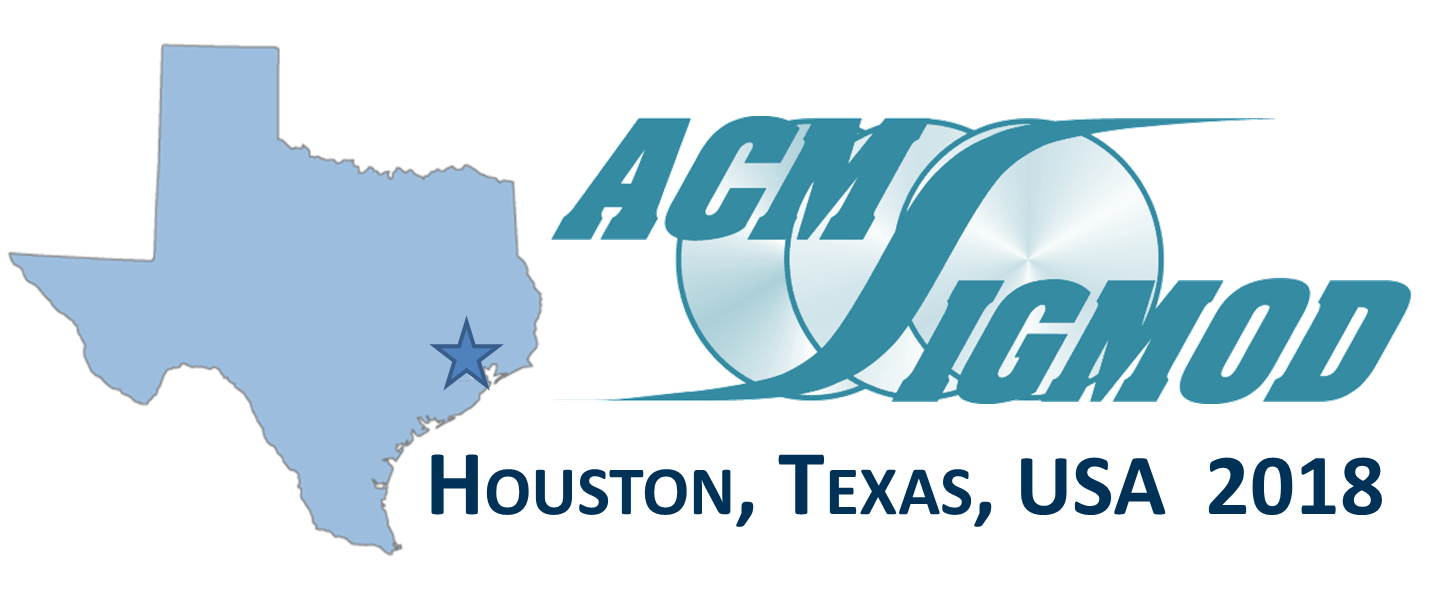
We are very pleased to announce that our group got 1 paper accepted for presentation at the GRADES workshop at SIGMOS / PODS 2018: The International ACM International Conference on Management of Data, which will be held in Houston, TX, USA, on June 10th – June 15th, 2018.
The annual ACM SIGMOD/PODS Conference is a leading international forum for database researchers, practitioners, developers, and users to explore cutting-edge ideas and results and to exchange techniques, tools, and experiences. The conference includes a fascinating technical program with research and industrial talks, tutorials, demos, and focused workshops. It also hosts a poster session to learn about innovative technology, an industrial exhibition to meet companies and publishers, and a careers-in-industry panel with representatives from leading companies.
The focus of the GRADES 2018 workshop is the application areas, usage scenarios and open challenges in managing large-scale graph-shaped data. The workshop is a forum for exchanging ideas and methods for mining, querying and learning with real-world network data, developing new common understandings of the problems at hand, sharing of data sets and benchmarks where applicable, and leveraging existing knowledge from different disciplines. Additionally, considering specific techniques (e.g., algorithms, data/index structures) in the context of the systems that implement them, rather than describing them in isolation, GRADES-NDA aims to present technical contributions inside the graph, RDF and other data management systems on graphs of a large size.
Here is the accepted paper with its abstract:
- “Two for One — Querying Property Graphs using SPARQL via GREMLINATOR” by Harsh Thakkar, Dharmen Punjani, Jens Lehmann and Sören Auer
Abstract: In the past decade Knowledge graphs have become very popular and frequently rely on the Resource Description Framework (RDF) or Property Graphs (PG) as their data models. However, the query languages for these two data models – SPARQL for RDF and the PG traversal language Gremlin – are lacking basic interoperability. In this demonstration paper, we present Gremlinator, the first translator from SPARQL – the W3C standardized language for RDF – to Gremlin – a popular property graph traversal language. Gremlinator translates SPARQL queries to Gremlin path traversals for executing graph pattern matching queries over graph databases. This allows a user, who is well versed in SPARQL, to access and query a wide variety of Graph databases avoiding the steep learning curve for adapting to a new Graph Query Language (GQL). Gremlin is a graph computing system-agnostic traversal language (covering both OLTP graph databases and OLAP graph processors), making it a desirable choice for supporting interoperability for querying Graph databases. Gremlinator is planned to be released as an Apache TinkerPop plugin in the upcoming releases.
Acknowledgment
This work has received funding from the EU H2020 R&I programme for the Marie Skłodowska-Curie action WDAqua (GA No 642795).
Looking forward to seeing you at The GRADES 2018.

